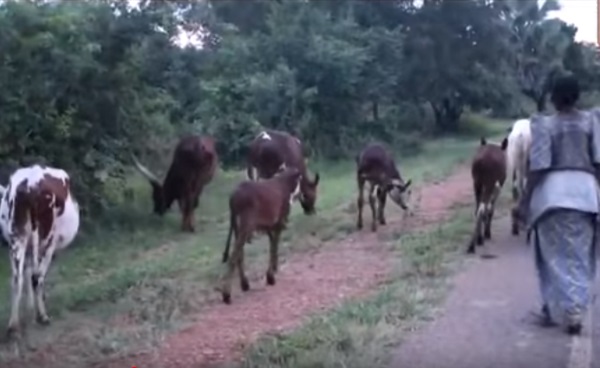In May this year, the Ministry of Agriculture and Animal Husbandry imposed a quarantine on Nakasongola district following an outbreak of Foot and Mouth disease in cattle. The disease had spread to the Sub-counties of Wabinyonyi, Nabiswera, Nakitoma, Rwabyata, Kakoge, and Kakoge Town Council. Sseffolooza Nabukenya a resident of Wabbale in Wabinyonyi Sub-county relied on cattle rearing and the five months quarantine greatly affected her income. “I depend on my cows for a living, for instance, I can sell one of the cows for money which I then use in case of financial issues, buy essentials and I also feed on the milk they produce.” Said, Sseffolooza Nabukenya – Resident, Wabbale.
Transportation of cattle and dairy products from all the affected areas was prohibited. Nabukenya was not alone. “I also deal in cattle as I sell them to traders but with this quarantine, there is no business at all.” Reports from Nakasongola Veterinary office indicated that 20 heads of cattle had died on top of numerous post-abortions and reduced milk production. The district had lost 250 million shillings in local revenue. “From May to October it’s a long period of time and a lot of losses have been incurred. We have lost actually above 250 million in terms of local revenue because as you know Nakasongola bases on livestock and fishery.” Said, Sam Kigule – District Chairperson, Nakasongola.
Sam Kigula the District Chairperson said it had been resolved that all farmers vaccinate their cattle and failure to oblige would result in prosecution. “Whoever is found to have failed to vaccinate shall be arrested. How are we going to enforce it? We are going to send out our free Veterinary officers at every sub-county levels, go village by village, vaccinate kraal by kraal and the number of cows shall be actually determined because each Chairman knows.” The Animals’ Disease Act of 2000 authorized Veterinary officers to cause a compulsory vaccination of all livestock during an outbreak of an epidemic disease. The law called for arrest and imprisonment of not more than a year or a fine of 2 million shillings or both in case one failed to comply. Each head of cattle required one dose which cost between 2,000 and 3,000.

